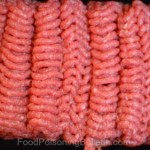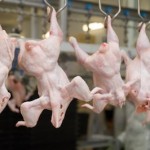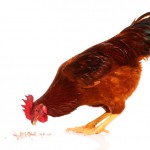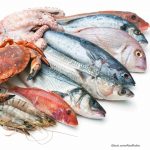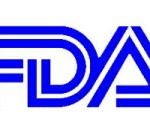Food & Water Watch is denouncing beef imports from Brazil and Argentina. Executive Director Wenonah Hauter released a statement about the USDA lifting restrictions on these imports. Those countries have "a history of the deadly disease of foot and mouth disease in animal herds." There has not been a case of FMD in the United States since 1929. Members of Congress ask that the U.S. Government Accountability Office (GAO) study these rules. That has not been done. The process was rushed, since the Office of Management and Budget (OMB) can take up to 90 days to review "significant" rules. Hauter states, "Brazil and Argentina have checkered food safety records, as USDA has been forced on several occasions to suspend imports of products currently eligible to come into the U.S. for … [Read more...]
Tell USDA No Apples from China
The USDA this summer proposed to amend the fruits and vegetables regulations to allow the import of fresh apples from China into the United States. the only condition is that apples from areas in China where the Oriental fruit fly is not known to exist would include special rules. Those rules would include registration of places of production, inspection for quarantine pests and bagging of fruit and treating the apples with fumigation and refrigeration. All apples from China must be accompanied by a "phytosanitary certificate" stating that all conditions for importation of apples have been met. Food & Water Watch opposes this rule, stating that "the proposed approach for managing the threat of quarantine pests would increase the volume of imported apples that should be inspected … [Read more...]
Chinese Meat Plant Implicated in Food Safety Scandal
According to Food & Water Watch, Shanghai Husi Foods Company, a meat plant in China, is implicated in a Chinese food safety scandal. That plant passed USDA audits in 2004 and 2010. This is a problem because last year the USDA decided to let chicken processed in China be exported to the United States. Food & Water Watch has sent a letter to USDA Secretary Tom Vilsack, asking him to stop all activities that would "pave the way for China to export their poultry products to the U.S." Shanghai Husi Foods sold expired meat and poultry products to Chinese fast food restaurants and exported some of those foods to Japan. Wenonah Hauter, executive director of Food & Water Watch said in a statement, "it has been nearly a decade since China made its initial request to send its … [Read more...]
Petco, Petsmart Phasing Out Sales of Chinese Pet Treats
Petco and Petsmart have announced plans to stop carrying pet treats imported from China after last week's FDA announcement that they can't find the cause of 4,800 dog and cat illnesses. The government has been researching this issue for seven years and cannot figure out what is going wrong. Veterinarians and the government are reminding pet owners that these treats are not necessary to a pet's nutrition or health. Safety advocates have been asking the government to ban these imported treats for years, but nothing has been done. Food & Water Watch commends Petco and Petsmart for taking this step, but say that they should remove those products from their shelves immediately rather than simply phasing them out. More than 1,000 dogs have died after consuming these treats. Three … [Read more...]
CFS Report Warns of Food Safety Problems with TTIP
The Center for Food Safety (CFS) released a report last week looking at the potential food safety effects of the Transatlantic Trade and Investment Partnership (TTIP), currently being negotiated by the U.S. and the European Union. The report, titled "Trade Matters" calls the trade agreement "highly undemocratic and non-transparent." TTIP follows the trade agreement models of NAFTA (North American Free Trade Agreement), which focus on trade barriers. Those "barriers" are actually health and environmental standards that safeguard the citizens of each country. CFS states that "many analysis believe that a central aim of the negotiations is to dismantle many food safety regulations that corporations view as impediments to trade and profit making." The partners negotiating this trade … [Read more...]
USDA Approves Poultry Imports from South Korea Despite Flu
In spite of a massive bird flu outbreak, the USDA has approved import of poultry products from South Korea. The final rule grants equivalency status to the Republic of Korea. It becomes effective May 27, 2014. It reads "slaughtered poultry or parts or other products thereof processed in certified Korean establishments will be eligible for export to the United States. All such products will be subject to re-inspection at United States ports of entry by FSIS inspectors." The bird flu in outbreak in Korea, which was discovered January 2014, has led to the culling of 11 million birds nationwide. Food safety and consumer groups are opposed to this new USDA rule for this reason and for many others. Food and Water Water issued a press release about this matter. They filed comments … [Read more...]
North Carolina Researchers Find Formaldehyde in Imported Fish
Researchers at North Carolina State have verified that an inexpensive instant test for formaldehyde on food has found about 25% of the imported fish purchased at a grocery store chain in Raleigh, North Carolina had unacceptable levels of the chemical. The contaminated fish were imported from China and South Vietnam. Swai, cod, pollack, shrimp, tilapia, and whiting are some of the species that were contaminated. No fish from the United States or other regions tested positive for formaldehyde. The chemical occurs naturally in tiny quantities in fish and other foods, including fruits and vegetables, but the levels found in the tests were far beyond normal or acceptable. The FDA does not test fish for formaldehyde, even though some countries such as Bangladesh use it to preserve food … [Read more...]
Food & Water Watch on FSIS Audit of Chinese Poultry Safety System
Last week, the USDA's Food Safety and Inspection Service approved certain Chinese chicken processing facilities to export product to the United States. Their audit says that China's processed poultry inspection system safety system is equivalent to the U.S. system. The report states that "the Central Competent Authority (CCA) has adequately addressed all previously identified concerns. Therefore, the People's Republic of China's processed poultry inspection system meets the equivalence components for FSIS equivalence criteria." The People's Republic of China can now certify a list of establishments that are eligible to export heat treated and cooked poultry products to the U.S. The caveat is that this will be allowed as long as raw poultry is sourced from countries that FSIS has … [Read more...]
Food & Water Watch Concerned About Contaminated Meat from Australia
Food & Water Watch has issued a statement saying that six months after they sent a letter to Agriculture Secretary Tom Vilsack about how the Australian Export Meat Inspection System (AEMIS) led to an increase in import rejections of unsafe Australian meat, the problems have not improved. A new letter has been sent about this matter. Wenonah Hauter, Executive Director of Food & Water Watch said in a statement, "we're calling on Secretary Vilsack to start the process to revoke the equivalency status of Australia's privatized inspection system. The latest import rejections for visible fecal and ingesta contamination point to a failed system. USDA recognized this privatized inspection model in 2011 in its haste to backdoor a privatized inspection system here in the United STates. … [Read more...]
FSMA Imported Foods Rule Takes Effect Today
One of the new rules mandated by the Food Safety Modernization Act (FSMA) is being put into effect today. the "Information Required in Prior Notice of Imported Food" is now a final rule and is the law of the land. This rule is designed to stop contaminated food at U.S. borders. If a food that is waiting for clearance into the country has been refused entry by another country, it will be rejected at the border. Food importers must follow this rule, which was originally put into place in 2002 after 9/11. The rule states, "for purposes of this regulation, FDA considers 'refused entry' to mean a refusal of entry or admission of human or animal food based on food safety reasons, such as intentional or unintentional contamination of an article of food. This is consistent with the intent of … [Read more...]
